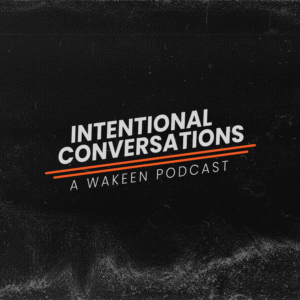In this article:
- Basics: Markets & Audiences
- Strategy: Channels, Timing & Budgeting
- Game Theory: Research, Agility & Learnings
It’s 2024. You’re a media planner. If you are placing a “business as usual” media plan your client’s strategy may not withstand the political blitzkrieg that is already underway. There are several factors to ensure messages effectively reach your client’s audiences without being overshadowed or even bumped by political noise. Here are some key moves to help you outmaneuver the candidates.
Basics: Markets & Audiences
- Understand the Landscape: Be mindful of the political climate in your target area and how that may impact your client’s campaign. Research is key. Identify important dates, events, and issues in the communities that make up your client’s footprint. Don’t overlook the impact of local elections.
- Know Your Audiences: Have you identified their demographics, interests, and behaviors to help determine how they may be influenced by political messaging? Are they more into cat memes than campaign slogans? Adjust your strategy accordingly.
Strategy: Channels, Timing & Budgeting
- Pick Your Battles…and Channels: Select media outlets that are less likely to be saturated. Traditional network television and radio stations are typically overloaded with political messaging surrounding an election. Instead, consider focusing on out-of-home or digital platforms like social media, email marketing, or targeted display ads. They’ll have available inventory, and you’ll have more control over the timing and placement. Securing influencer partnerships is another safe opportunity but beware of any political ties and/or endorsements that may conflict with your client’s brand.
- Plan Your Flights Like a First Officer: Know political events and peak times when political ads are less likely to dominate the airwaves. Avoid executing during high-profile debates or major election nights when viewership may be focused on that coverage. Choosing to steer clear of certain outlets in late Q3 and early Q4 is highly recommended. Even if your message doesn’t get bumped, it is likely viewers will be overwhelmed and switching channels.
- Ball on a Budget: It’s no secret that some traditional media outlets will raise costs this year. Be aware of your available spend and how media planning decisions will impact the overall Reach and Frequency of the campaign. Remember that your clients trust your creativity and ingenuity but managing expectations around 3Q & 4Q deliverables should be a priority.
Game Theory: Research & Learnings
- Be Sensitive to Political Content: Ensure messaging abstains from controversial topics that may alienate or offend audiences. Do not include direct references to political candidates or issues unless the brand you are representing has a clear and relevant stance. Focus on delivering value, solving problems, or providing entertainment/humor to capture attention and drive engagement.
- Stay Agile: Be ready to switch gears faster than a Formula 1 driver. Keep a close eye on performance metrics, and delivery, and be prepared to adjust your strategy at any time. Remain flexible to continue your campaign’s effectiveness throughout the flight. Prioritize communication leading up to the election season.
Measure, Learn, Evolve:
Message fatigue is real. Especially during the political season when consumers are inundated with candidate ads. Keep your creative fresh every 30-45 days and try out A/B testing to see what resonates most with your audience. After the election has passed, don’t forget the importance of evaluating the effectiveness of the campaign. Analyze KPIs such as reach, engagement, and ROI to determine what worked well and identify areas for improvement in future campaigns (like the one in four years).
Believe in yourself, Media Planner. You can effectively plan and execute while maximizing the impact of overwhelming political noise. It’s survival of the cleverest and most adaptable. Be aware and prepare. Go forth, fellow marketer, and conquer the ad jungle!



